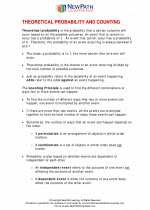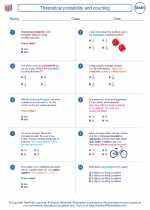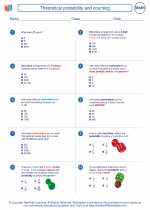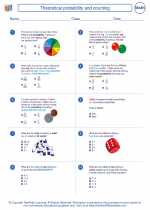Enumeration
Enumeration is the process of counting or listing all the elements in a set. It is an important concept in mathematics and is used in various applications such as combinatorics, probability, and statistics. In enumeration, we often use techniques such as counting principles, permutations, combinations, and the use of factorials.
Counting Principles
Counting principles are rules and techniques used to count the number of elements in a set. Some of the common counting principles include the multiplication principle, addition principle, and the principle of inclusion-exclusion.
Permutations
A permutation is an arrangement of objects in a specific order. The number of permutations of n objects taken r at a time is denoted by P(n, r) and is given by the formula:
P(n, r) = n! / (n - r)!
where n! (read as "n factorial") is the product of all positive integers from 1 to n.
Combinations
A combination is a selection of objects from a set without considering the order. The number of combinations of n objects taken r at a time is denoted by C(n, r) and is given by the formula:
C(n, r) = n! / (r! * (n - r)!)
Factorials
Factorial of a non-negative integer n is denoted by n! and is the product of all positive integers from 1 to n.
n! = n * (n - 1) * (n - 2) * ... * 3 * 2 * 1
Study Guide
When studying enumeration, it's important to understand the basic counting principles and how to apply them in different scenarios. Practice problems involving permutations and combinations to familiarize yourself with the formulas and their applications. Additionally, make sure to grasp the concept of factorials and how they are used in enumeration problems. Finally, work on real-world problems that involve enumeration to see how these concepts are applied in various contexts.
Remember to practice regularly and seek help from your teacher or tutor if you encounter any difficulties.
Good luck with your studies!
[Enumeration] Related Worksheets and Study Guides:
.◂Math Worksheets and Study Guides Eighth Grade. Theoretical probability and counting

 Worksheet/Answer key
Worksheet/Answer key
 Worksheet/Answer key
Worksheet/Answer key
 Worksheet/Answer key
Worksheet/Answer key
